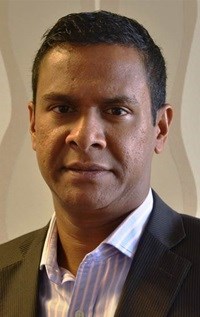
Top stories

Marketing & MediaCould an alcohol ad encourage children to climb into washing machines?
Karabo Ledwaba 4 hours

Energy & Mining#MiningIndaba: Is South African mining ready for the skills of tomorrow?
Maroefah Smith 5 hours




More news















Closer to home, many innovative Wi-Fi projects - including those being rolled out in Tshwane and a recent initiative in Braamfontein that includes Wi-Fi benches being installed in that Joburg precinct - show us that this increasingly ubiquitous radio technology is being deployed across South Africa to meet consumer demand.
Most South Africans still equate Wi-Fi with internet and email connectivity provided primarily in hotel lobbies, at conferences and of course at restaurants, which is probably the first place the vast majority of us first experienced a Wi-Fi connection. This perception of Wi-Fi is becoming increasingly outdated as organisations such as the Wi-Fi Forum of South Africa (WFFSA) work to promote the adoption by business owners and others of the technology that will lead the way in mobile access.
In addition, the WFFSA has engaged with leading ICT industry associations including the FTTH Council, Wireless Access Providers' Association (WAPA) and the Internet Service Providers' Association (ISPA) in order to help WFFSA achieve its mandate of constructive cooperation with established ICT players in pursuit of open access principles.
We will continue to deepen our engagement with the industry in order to effectively promote the concept of the heterogeneous network that is open to all and closed to none. 'Hetnets', as the WFFSA defines them, consist of 3G and 4G mobile networks, small cell networks and Wi-Fi networks all interlaced to deliver a seamless connectivity experience that is also pervasive. Operators restricting access to their networks is simply counter-productive.
So what else can be done to promote the use of Wi-Fi as a viable, affordable and reliable open access technology?
As a start, South Africa needs our telecommunications regulator, ICASA, to provide the proper policy framework so that this country can reach the five million Wi-Fi hotspot target referred to by our chairperson, Andile Ngcaba. At present, the WFFSA estimates that there are some 12,000 public and private hotspots in South Africa. With less than impressive statistics like this, we cannot hope to reach a situation where Wi-Fi is so ubiquitous that it is installed in street lights, such as in Copenhagen.

When you reach this level of hotspot penetration, Wi-Fi goes well beyond mere internet connectivity and begins contributing to the achievement of government and society's goals in the spheres of health, education, entrepreneurship, job creation and crime prevention.
It is interesting that there is currently no agreement regarding how a hotspot is defined. Manufacturers might define the latter in terms of similar equipment rolled out within a particular area while operators and service providers might be interested only in location.
On the potential reasons for South Africa having less than its reasonable share of the globe's almost 300 million Wi-Fi hotspots, the country's 3G mobile data coverage must surely be right up there. However, while consumers downloading data via 3G might be a historically acceptable scenario, consumer data needs in 2015 are such that it just does not make sense any longer for downloads to be taking place over expensive 3G and 4G cellular networks.
Fortunately, I think there is a growing acceptance amongst mobile operators of the concept of the 'hetnet'. Let us continue the kind of frank discussions amongst all local stakeholders that will result in this open access ideal.